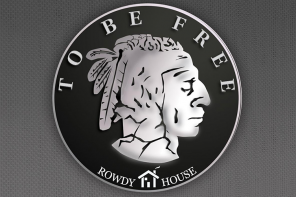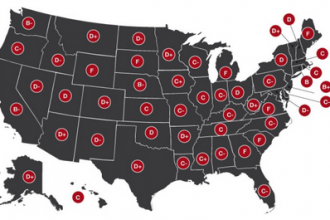What’s the “Raisin Renegade” about? Someone who you probably don’t know who fought an epic David and Goliath battle for you and your family. And a world class rocking guitar battle starting at about 2:00 into the song. And the government taking your hard earned money. Earned with your own blood sweat and tears, they can take as much as they want from you. But you knew that, right? Sometimes it’s called Income Tax. Every election cycle politicians promise to take less or take it from someone else or to reduce their wasteful spending. But mostly they spend more, and you are required to work harder, and as time goes by, what you earn is worth less.
For most of its early history, America was income tax-free. It was taxes that got Americans riled up enough to revolt against the British in 1773. Remember that, because as the government continues to grow and expand uncontrollably, you and your family pay for it. Our founders tried to give us the power to stop it. But we’ve all got to wise up and pay a little attention, because sometimes you have to stand up for your rights, and possibly against your own government, when it inevitably becomes unbearable.
So after the Revolutionary War, the new American government was wary when it came to taxation. In those days, direct taxation was basically more or less prevented by the constitution. After all, new governments can be over thrown, and the British had just been thrown out. So taxes were a prickly subject.
So government revenues had to be collected through tariffs and duties on certain things. They decided they would tax things like liquor, tobacco, and sugar. There were a few ups and downs with that idea and in 1794, the Whiskey Rebellion broke out when some Pennsylvanian farmers got a little angry about the tax on their whiskey and on one rowdy weekend they decided that it was a good idea to tar and feather a few tax collectors (just some good old drunken farm boy Saturday night fun) and then they burned down their houses. The government used the military against those disobedient citizens. And it wouldn’t be the last time. (Even to this day the government seems to have it out for the independence of the family farmer.)
Years later after the American Civil War, Congress passed the Revenue Act of 1861, to pay for the war. At that point, the tax was on incomes exceeding $800 and the tax was rescinded by 1872, but this act created most of what we consider the modern tax system. The U.S. Internal Revenue Service (IRS) was founded.
Years later in 1913, the 16th Amendment was introduced to pave the way to today’s income tax. It was quickly followed by an income tax on people with an annual income of over $3,000. At that time, the tax affected less than 1% of Americans, but by 1945 the yearly receipts were in excess of $45 billion, up from $9 billion in 1941. And by then, 43 million patriotic Americans were dutifully paying tax.
So more aggressive taxation started in around 1940 to prepare for war, and the pay-as-you-go withholding system was also introduced as a wartime measure. But surprise, surprise, after the war, it was never shut down. (Are we beginning to see how this works?) Over time, a complicated tax code developed with new loopholes and complex legalese added every year. Everyone had to spend a huge amount of their personal free time to deal with mundane bookkeeping tasks or hire accountants to help pay their taxes. In addition, with rising inflation, the real value of people’s income was being decreased, but as they got paid more to adjust for inflation their income moved to a higher tax bracket and so they had to pay an even higher tax percentage.
By 2015, total federal revenue was about $3.18 trillion. About 47% comes from income taxes paid by individuals – and that’s now up to about $1.48 trillion. Another trillion or so is their “Payroll Taxes” and the rest is mostly from Corporate Income Taxes. As government got more money it found more ways to waste it, and more ways to tax us to get more. We’re all familiar with the self perpetuating cycle. As if the income tax wasn’t enough, there are still taxes on just about everything you consume. So you pay when you earn it and then pay again when you spend it. Sales tax, gasoline tax, property taxes, state and local taxes, school taxes, capital gains taxes, and on and on, they tax just about everything, and then you die and they tax whatever you have left over to pass on to your heirs. That’s how they keep families in their role as hardworking, obedient and compliant tax payers with little opportunity to change their station in life. (Helpful hint: By the way it does not have to be this way, but the problem is that we allow it. Remember, we haven’t tarred and feathered any tax collectors since 1794.)
So what does this all have to do with the “Raisin Renegade”? What’s the song about? The Raisin Renegade story is about the government taking your work product even before you make any taxable income from it. It’s about taking your personal property that you worked hard to create. The story is also about an antiquated regulation that needlessly costs American consumers in order to line the pockets of government cronies. And it’s about a little known American hero, Marvin Horne, who was labeled by the media, the “Raisin Renegade”.
Marvin Horne was a simple raisin farmer, and for decades he lived happily farming raisins on a vineyard in Kerman, California. (OK, so now you’re thinking: oh, oh another farmer story, I remember those uppity Pennsylvania farmers that tar and feathered tax collectors back in 1794). It’s important to note that these things don’t usually start with the farmers; they start with oppressive, overreaching or corrupt people in government. And it’s just that the hard work of farming tends to promote the growth of enough balls to stand up against an overreaching government. In this case it was something called the “Raisin Administration Committee”. It sounds like something out of the old Soviet Union, but it’s not. The Raisin Administration Committee (“RAC”) is directly overseen by the United States Department of Agriculture and was created in 1949 as a result of the Agricultural Marketing Agreement Act of 1937. It’s basically a committee appointed by the Secretary of Agriculture (Read: cushy job for friends of the Secretary of Agriculture). Come on, the Raisin Administration Committee? LOL Sorry it’s just so ridiculous.
In 1949 the U.S. Department of Agriculture implemented the “Marketing Order Regulating the Handling of Raisins Produced from Grapes Grown in California” (Marketing Order). The Marketing Order authorized the federal government to reserve (Read “confiscate”) a percentage of the yearly California raisin crop to stabilize the supply, and price, of California raisins. (Read “price fixing”, because if you and I were doing it that’s what the federal government would call it when they arrested and prosecuted us under the Sherman Anti Trust Act). Under the Marketing Order, farmers are entitled to a share of the proceeds acquired when, or if, the government sells the reserved raisins. (Read: “creates a 65 million dollar per year government slush fund”)
Evidently, the Raisin Committee (“RAC”) decided to vote for a particularly big diversion in 2002. Instead of letting the farmers sell all their raisins, they decided to confiscate a substantial amount of them into the raisin “reserve” — 47 percent. (Somebody associated with the RAC must have had some bills to pay?)
It’s interesting to note here that the payment that raisin producers ultimately received from the government in 2002-03 was less than the cost of production, and for 2003-04, raisin producers received nothing.
It is also known that in the past some of the raisins in the reserve were sold overseas, with proceeds used to cover “committee costs”. (Politicians love overseas sales involving creative banking transactions.) Any leftover profits are supposed to be distributed back to farmers, but it was said that “They pretty well spent it all.” Some years that amounted to about 65 million dollars. (That seems like an awful lot of office supplies for the “cushy Raisin Committee job for friends of the Secretary of Agriculture”).
So Marvin Horne was not about to give up nearly half his production to fund the bloated Raisin Shenanigans Committee and thought he saw a loop hole. He attempted to go round the Marketing Order by processing his own raisins, which he claimed exempted his raisins from the Marketing Order’s reserve requirement. The Department of Agriculture claimed Horne’s raisins were subject to the Market Order, and following administrative proceedings, Horne was fined about $680,000 which grew to possibly about $3 million over years of litigation.
Horne sued the Department of Agriculture and claimed that the Marketing Order violated his Fifth Amendment protection from uncompensated takings. (You can’t take my stuff without paying me for it Mr. Government Overreach.) This is about where the media started to refer to Marvin Horne as the “Raisin Renegade”.
We need to appreciate the fact that what happened next would take years of stressful, expensive and complicated legal filings, responses, court battles, jurisdictional arguments, hot potato passing and appeals to courts owned by the biggest bully around, the US Government. That’s easy to say, but not so much fun to live through. Marvin argued that the raisin program violates the Constitution’s ban on taking property without compensation. He lost that argument repeatedly, but he appealed all the way to the U.S. Supreme Court, – twice. It’s not easy to be a “Raisin Renegade”, but sometimes it’s just the right thing to do to help everyone else.
It’s also important to understand that during this time Marvin claims that the RAC began an investigation full of “dirty tricks”. Private investigators (paid for with raisin money) were hired to spend hours sitting outside the Horne’s farm recording video of trucks entering and leaving the property and spying on Marvin, and his wife Laura. As a result, his children and grandchildren became afraid to go out in front of their farm to catch the school bus. They probably still have nightmares of jackbooted government thugs ruthlessly carrying their grandparents away from their happy farm, with a lot of crying, kicking and screaming.
All this is aggravated by the fact that while some raisin farmers supported his position and cheered him on in his fight for market freedom and property rights, other more obedient farmers were angered by his refusal to comply with the governments raisin authority figure. He was looked at in his community by those fellow farmers as a criminal. Again, it’s not easy to be a “Raisin Renegade”.
At first, the district court found in favor of the Department of Agriculture, so it didn’t look good for Marvin Horne’s family from the start.
Then the U.S. Court of Appeals for the Ninth Circuit held that Fifth Amendment takings claims are within the jurisdiction of the Court of Federal Claims and therefore, it lacked standing to address Horne’s claim.
Then the United States Supreme Court held that the appellate court did have jurisdiction and remanded the case. This decade long saga was turning out to be a real emotional roller coaster ride with lots of ups and downs.
Then on remand, the appellate court found for the Department of Agriculture by holding that the reserve requirement did not act as a “per se” taking because Horne’s raisins constituted personal property rather than real property. The appellate court also held that the Marketing Order did not constitute a taking because there was a sufficient association, and rough proportionality, between the reserve requirement and the specific interest the government seeks to protect, which in this case is supposedly the government’s interest in stabilizing raisin prices. (LOL at the absurdity of that, but at this point the Horne family wasn’t laughing.)
Then back to the Supreme Court for the second time, the underdog finally won one: an 8–1 decision for Horne. The decision: Requiring the relinquishment of property as a condition of engaging in commerce is a taking. The government must provide just compensation under the Fifth Amendment Takings Clause.
And in a 5–4 decision for Horne, the reserve requirement does not adequately compensate Horne under the meaning of the Fifth Amendment.
The Court held that the Takings Clause of the Fifth Amendment applies with equal force to personal as well as real property; therefore the Marketing Order’s reserve requirement constituted a taking under the Fifth Amendment because it deprives the owners of their property rights to “possess, use, and dispose of” the raisins. Because a physical taking has occurred, returning the net proceeds of the sale of the raisins to the owners does not exempt the government from paying just compensation for the taking itself. The Court also held that making the reserve requirement a condition on legally participating in the raisin market effects a “per se” taking because it cannot be properly characterized as a voluntary exchange for a governmental benefit. Therefore, the government should pay a just compensation for the taking, which the government has already calculated in its attempt to fine Marvin Horne the fair market value of the raisins at issue, by rescinding the fine it had imposed.
It was finally decided on June 22, 2015. But it’s interesting to note that the government got away with creating this slush fund and operating it for decades.
So Marvin Horne won one for us all. He stood up when those with weaker spines would not. He fought an expensive complicated legal battle with the government and endured it for years. The legal outcome ultimately helps protect us all a little more from the future over reaching tactics of our own federal government. The government has all the resources and when they roll over an ordinary American citizen who does not have the financial wherewithal or will power to continue a legal battle, we all lose because more case law is created that strengthens the government’s legal positions and chips away at our rights. They know this and it happens too often. We should have bronze statues made of patriots like Marvin Horne, the Raisin Renegade. The “Raisin Renegade” is an American hero because this time, just for once, the little guy won one for us all, (and no government agents were tarred and feathered in the process).





